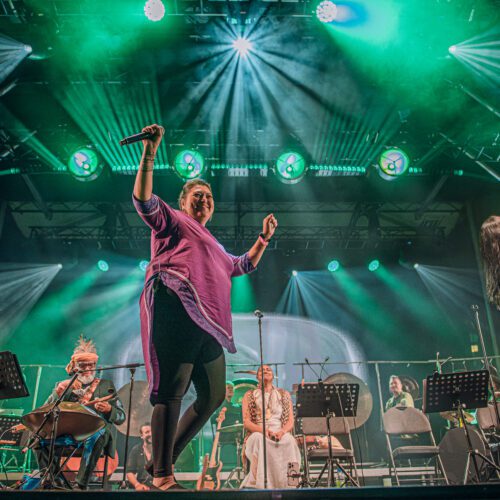Here is certainly one of the most beautiful recordings of the year in contemporary orchestral music. The soloists are exceptional (Leleux and Batiashvili), the orchestra is magnificent, the conductor is a master of creating varied textures, and the works on the program are from the most skillful pens of the early 21st century, the Frenchmen Nicholas Bacri and Thierry Escaich, and the Swiss Michael Jarrell.
If Jarrell and Escaich invite us into their typically spectral and teeming universe, Nicholas Bacri begins this program with a piece that is very economical in terms of gestures and activities. The Notturno for Oboe and Strings, Op. 74 is indeed a pensive, tonal, and lyrical nocturne. One thinks of English pastoralism of the early 20th century (Holst, Vaughan Williams, Bridge). A piece that can be described as conservative, of great beauty and ideal for allowing Leleux, THE oboist of his generation, to shine brightly.
Jarrell’s oboe concerto Aquateinte dates from 2016. According to Wikipedia (translated from French) : Aquatint or aquateinte is an etching process. This process involves sprinkling a metal plate with a more or less dense layer of protective resin powder (rosin or bitumen). The plate is then heated before being dipped in a basin of acid. The use of fine resin particles allows for a surface composed of dots rather than strokes, which results in different color tones.
What we mainly remember is the idea of points that form coherent images, a principle taken up by Jarrell in a sonic texture, of course. Aquateinte offers a panorama of vaguely spectral music, certainly pointillist, where the virtuosity demanded of the soloist is impressive and fits into a rich general framework that requires the same technical quality from the entire orchestra. The result is breathtaking, thanks to a shimmering score performed with absolute perfection by Leleux and the Frankfurt orchestra. The synesthesia that occurs here, therefore, between the visual and the musical, is very convincing, which is quite rare in this kind of exercise, I find.
The program concludes with a gem by Thierry Escaich, the Double Concerto for Oboe, Violin, and Orchestra, in which Bach’s work for the same soloists, the famous concerto BWV 1060, is quoted and integrated into the overall framework of the contemporary French composer. It is a true dialogue moderated by a deep mutual respect between the two aesthetics that music lovers are invited to. Leleux and his partner Batiashvili (a couple in concert as in life) whirl skillfully through Escaich’s busy but ultra-clear landscapes. A first movement tinged with urgency and nervousness gives way to a central andante that evolves from a melancholic lyricism towards a threatening and charged dramatic density. The final allegro, on the other hand, illuminates the listening experience with a brilliant optimism reminiscent of certain positive American music (Michael Torke, John Corigliano).
Ideal performances and brilliant music, that’s the winning combination that will make Future Horizons an album of the year.























